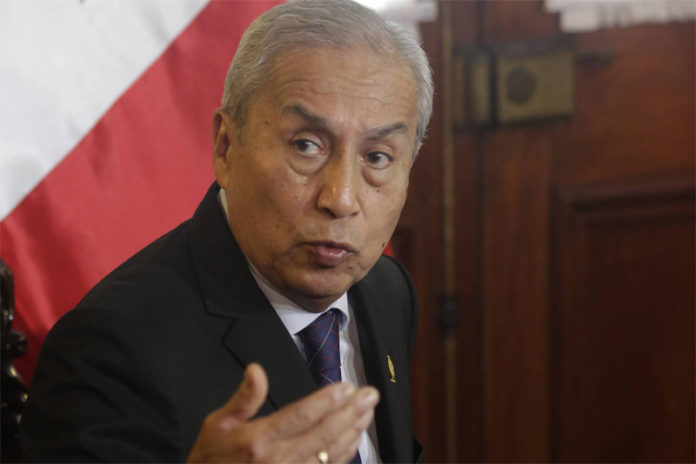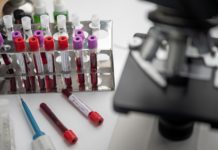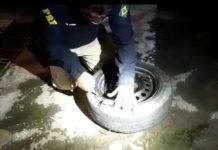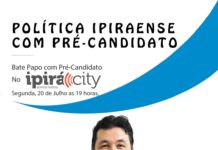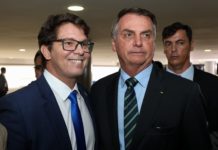Pressure from public opinion and all political sectors, except fujimorism and the Aprista party, led to the resignation of Pedro Chávarry, suspected of attempting to undermine investigations of corruption
Patrick Fowler
The attorney general of Peru, Pedro Chávarry, announced on Monday night that he will deliver his resignation to the Supreme Prosecutor’s Office on Tuesday, the public prosecutor who chose him for the position, thus ending five months of instability and Crisis in the institution. The procurators ‘ own board had requested their resignation on Thursday, claiming that Chávarry harmed the investigations for corruption and money laundering involving four former presidents and a presidential former presidential candidate linked to the Activities of the Brazilian Odebrecht contractor in Peru.
Chávarry removed the two main promoters of the Peruvian Lava-jet task Force on the night of December 31. One of the distant promoters, José Domingo Pérez, was responsible for investigating the former Presidents Alan García, Alejandro Toledo and Pedro Pablo Kuczynski, besides the oppositionist leader Keiko Fujimori. The measure motivated popular protests in various regions of the country on the eve of the new Year and on the 1st day. of January.
On January 2, in an action sui generis, Pérez and the coordinator of the Task Force of the Peruvian Lava jet, prosecutor Rafael Vela, resorted to the board of Supreme attorneys against the decision of the Attorney general, given the lack of reasons to keep them away from the group. At the same time, President Martín Vizcarra personally handed over to Congress a bill that would dissolve the board of Attorneys integrated by Chávarry and appoint another, with deputy attorneys in charge of choosing a new interim chief for the Prosecutor.
Vizcarra handed the proposal to the legislature because the board of prosecutors has no authority to ward off the head of the Public Prosecutor’s Office in case of lack of suitability or improbiity. The only organ that could dismiss Chávarry would be the Congress, but this, dominated by the Fujimist Force Popular Party, allied with the Aprista Party of Alan García, has protected the attorney general in the last five months.
While Vizcarra was headed to Congress, Chávarry revoked the measure against the promoters of Lava Jato, who could thus maintain the investigations and the award-winning agreement with Odebrecht executives, who from this month will deliver more evidence of bribing In the concessions of infrastructure works and contributions to the cash-two political campaigns.
Last Thursday, thousands of citizens returned to the streets in a dozen regions of the country for a nationwide mobilization under the motto “Fora Chávarry”. “In the name of the public Prosecutor’s autonomy and in order to prevent other autonomous entities from being equally violated unconstitutionally, if this is a pretext for them to pursue these unlawful acts against the institution I represent, I will present my Letter of resignation to the office of Attorney General of the nation, “finally announced Chávarry this Monday on his Twitter account.
Since August, Chávarry has blocked, with the support of the Fujimist bench, an investigation against himself for being supposedly part of the network of corruption in the judiciary, the mafia nicknamed White collars of Porto. The Chief of the Organization supports, the destitute Supreme Court Judge César Hinostroza, offered aid in 2018 to the eldest daughter of former dictator Alberto Fujimori to avoid, by reviewing a sentence, that she continue under investigation for money laundering. But when the corruption scandal in the judiciary broke out in July, Hinostroza was removed from his office, and in October fled the country. He’s being held in Madrid today, while Peru has his extradition.
The board of Supreme attorneys, consisting of five members, only includes two promoters not linked to the corruption plot in the judiciary: Pablo Sánchez, who was head of the Public Prosecutor’s Office until July, and Zoraida Ávalos. Sánchez, as dean of the group, should take an interim and convene elections, but will transfer this assignment to his colleague Ávalos, who heads the institution’s internal control.
The future of Chávarry
The future of the prosecutor, who will continue to be part of the Supreme Attorneys ‘ board, depends on the position to be adopted by most fujimist in Congress. On Monday, the representative of the People’s force did not attend the meeting of parliamentary leaders who discussed the desirability of urgently bringing the five complaints against Chávarry to the Subcommittee on constitutional charges. In other words, fujimorism prevented the quorum and continued to shield the prosecutor.
If this parliamentary committee approves the allegations of constitutional infringement, they would vote in the board and subsequently to the plenary of the Congress. After losing their privileged jurisdiction, criminal investigations against Chávarry may also continue. It is still pending a constitutional accusation against prosecutor Tomás Gálvez, suspected of integrating the mafia of the white collars of Porto. Gálvez and prosecutor Víctor Rodríguez Monteza were allies of the head of the Public prosecutor’s office until last Friday.


